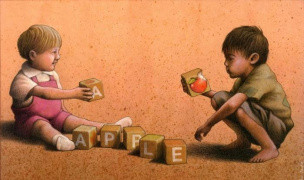 1 Terms
1 TermsHome > Terms > English (EN) > taxation
taxation
Prostitution may be the oldest profession, but tax collection was surely not far behind. In its early days, taxation did not always involve handing over money. The ancient Chinese paid with pressed tea, and Jivara tribesmen in Brazil stumped up shrunken heads. As the price of their citizenship, ancient Greeks and Romans could be called on to serve as soldiers and had to supply their own weapons. The origins of modern taxation can be traced to wealthy subjects paying money to their king in lieu of military service. The other early source of tax revenue was trade, with tolls and customs duties being collected from traveling merchants. The big advantage of these taxes was that they fell mostly on visitors rather than residents. Income tax, the biggest source of government funds today in most countries, is a comparatively recent invention, probably because the notion of annual income is itself a modern concept. Governments preferred to tax things that were easy to measure and on which it was thus easy to calculate the liability. This is why early taxes concentrated on tangible items such as land and property, physical goods, commodities and ships, as well as things such as the number of windows or fireplaces in a building. In the 20th century, particularly the second half, governments around the world took a growing share of their country’s national income in tax, mainly to pay for increasingly more expensive defense efforts and for a modern welfare state. Indirect taxation on consumption, such as value-added tax, has become increasingly important as direct taxation on income and wealth has become increasingly unpopular. But big differences among countries remain. One is the overall level of tax. For example, in United States tax revenue amounts to around one-third of its GDP, whereas in Sweden it is closer to half. Others are the preferred methods of collecting it (direct versus indirect), the rates at which it is levied and the definition of the tax base to which these rates are applied. Countries have different attitudes to progressive and regressive taxation. There are also big differences in the way responsibility for taxation is divided among different levels of government. Arguably, any tax is a bad tax. But public goods and other government activities have to be paid for somehow, and economists often have strong views on which methods of taxation are more or less efficient. Most economists agree that the best tax is one that has as little impact as possible on people’s decisions about whether to undertake a productive economic activity. High rates of tax on labor may discourage people from working, and so result in lower tax revenue than there would be if the tax rate were lower, an idea captured in the Laffer curve. Certainly, the marginal rate of tax may have a bigger effect on incentives than the overall tax burden. Land tax is regarded as the most efficient by some economists and tax on expenditure by others, as it does all the taking after the wealth creation is done. Some economists favor a neutral tax system that does not influence the sorts of economic activities that take place. Others favor using tax, and tax breaks, to guide economic activity in ways they favor, such as to minimize pollution and to increase the attractiveness of employing people rather than capital. Some economists argue that the tax system should be characterized by both horizontal equity and vertical equity, because this is fair, and because when the tax system is fair people may find it harder to justify tax avoidance and tax evasion. However, who ultimately pays (the tax incidence) may be different from who is initially charged, if that person can pass it on, say by adding the tax to the price he charges for his output. Taxes on companies, for example, are always paid in the end by humans, be they workers, customers or shareholders.
- Part of Speech: noun
- Synonym(s):
- Blossary:
- Industry/Domain: Economy
- Category: Economics
- Company: The Economist
- Product:
- Acronym-Abbreviation:
Other Languages:
Member comments
Terms in the News
Billy Morgan
Sports; Snowboarding
The British snowboarder Billy Morgan has landed the sport’s first ever 1800 quadruple cork. The rider, who represented Great Britain in the 2014 Winter Olympics in Sochi, was in Livigno, Italy, when he achieved the man-oeuvre. It involves flipping four times, while body also spins with five complete rotations on a sideways or downward-facing axis. The trick ...
Marzieh Afkham
Broadcasting & receiving; News
Marzieh Afkham, who is the country’s first foreign ministry spokeswoman, will head a mission in east Asia, the state news agency reported. It is not clear to which country she will be posted as her appointment has yet to be announced officially. Afkham will only be the second female ambassador Iran has had. Under the last shah’s rule, Mehrangiz Dolatshahi, a ...
Weekly Packet
Language; Online services; Slang; Internet
Weekly Packet or "Paquete Semanal" as it is known in Cuba is a term used by Cubans to describe the information that is gathered from the internet outside of Cuba and saved onto hard drives to be transported into Cuba itself. Weekly Packets are then sold to Cuban's without internet access, allowing them to obtain information just days - and sometimes hours - after it ...
Asian Infrastructure Investment Bank (AIIB)
Banking; Investment banking
The Asian Infrastructure Investment Bank (AIIB) is an international financial institution established to address the need in Asia for infrastructure development. According to the Asian Development Bank, Asia needs $800 billion each year for roads, ports, power plants or other infrastructure projects before 2020. Originally proposed by China in 2013, a signing ...
Spartan
Online services; Internet
Spartan is the codename given to the new Microsoft Windows 10 browser that will replace Microsoft Windows Internet Explorer. The new browser will be built from the ground up and disregard any code from the IE platform. It has a new rendering engine that is built to be compatible with how the web is written today. The name Spartan is named after the ...
Featured Terms
Apple
Apple Inc. is an American multinational corporation headquartered in Cupertino, California, that designs, develops, and sells consumer electronics, ...
Contributor
Featured blossaries
Browers Terms By Category
- Fiction(910)
- General literature(746)
- Poetry(598)
- Chilldren's literature(212)
- Bestsellers(135)
- Novels(127)
Literature(3109) Terms
- Festivals(20)
- Religious holidays(17)
- National holidays(9)
- Observances(6)
- Unofficial holidays(6)
- International holidays(5)
Holiday(68) Terms
- Prevention & protection(6450)
- Fire fighting(286)
Fire safety(6736) Terms
- Misc restaurant(209)
- Culinary(115)
- Fine dining(63)
- Diners(23)
- Coffehouses(19)
- Cafeterias(12)
Restaurants(470) Terms
- Wireless networking(199)
- Modems(93)
- Firewall & VPN(91)
- Networking storage(39)
- Routers(3)
- Network switches(2)




